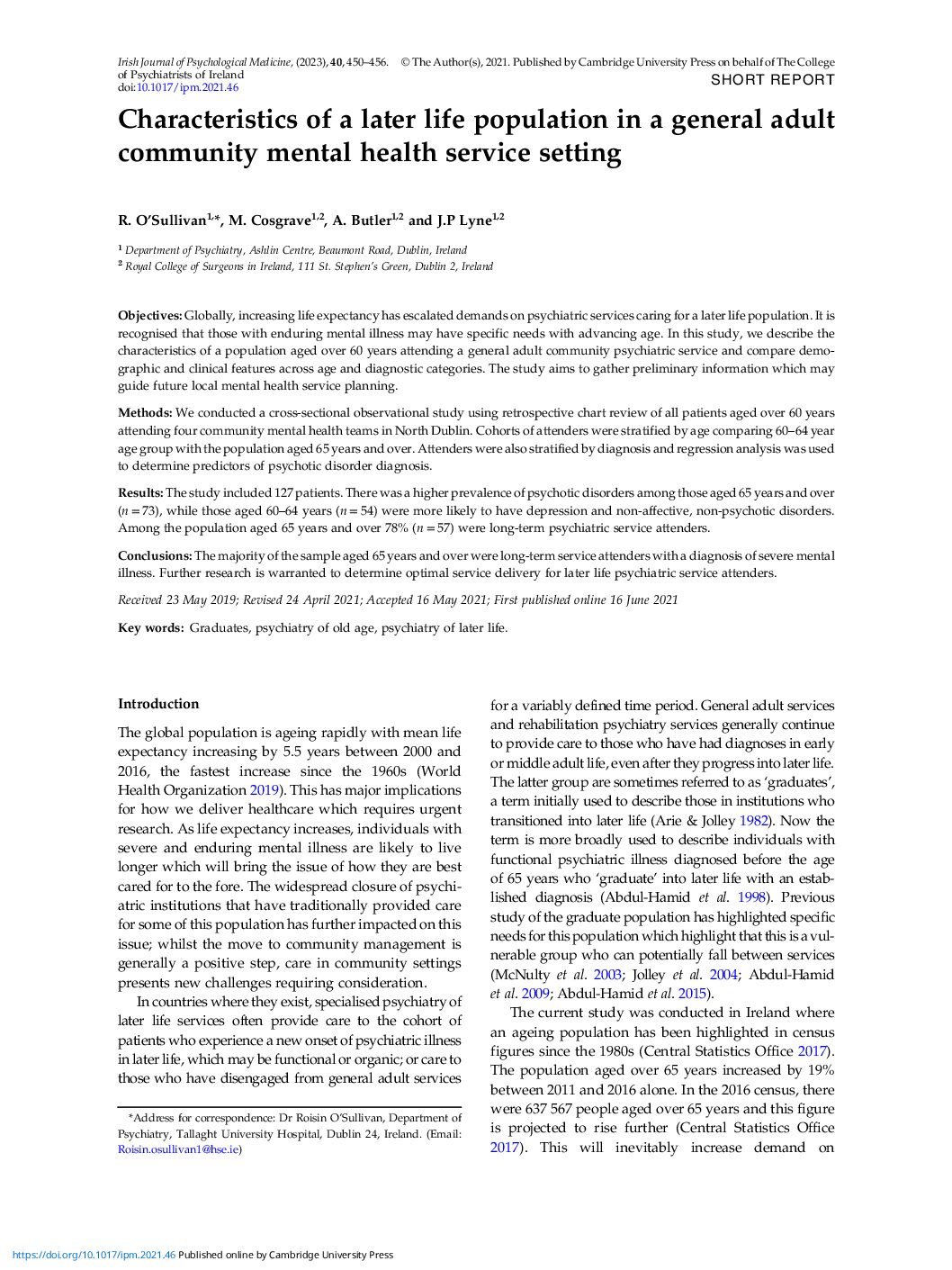Characteristics of a later life population in a general adult community mental health service setting
| This Irish study focuses on mental health diagnoses among older adults in North Dublin. As global life expectancy rises, the demand on psychiatric services catering to older populations has also grown. Individuals with chronic mental illnesses may have specific needs as they age. The research examined people aged 60 and older with long-term mental health conditions who were attending a general adult community psychiatric service. The goal of the study was to gather data that could assist in future planning for local mental health services.
The study employed a retrospective review of medical records for patients over 60 years old who were attending four community mental health teams in North Dublin. The patients were divided into two age groups: 60-64 and 65 and older. They were also categorised by diagnosis, and statistical analysis was performed to identify potential predictors of psychotic disorders. The results showed that psychotic disorders were more prevalent among those aged 65 and older (73 patients), whereas individuals aged 60-64 (54 patients) were more likely to suffer from depression or other non-psychotic conditions. Of the 65-and-older group, 78% (57 patients) had been long-term users of psychiatric services. The study concluded that most patients aged 65 and above had been receiving psychiatric care for an extended period and were diagnosed with severe mental illness. However, it also highlights the need for further research to determine the most effective way to deliver psychiatric care to older adults. |


